Discover the World of
Himalayan Mushrooms
Embrace Nature's Intelligence with Our Mushroom Mission
At our Mushroomish Kindgom, we believe in the power of nature to enrich your life and bring you closer to your true self. Our team is made up of passionate mushroom enthusiasts who want to share our love of fungi with the world. We believe that everyone should have access to the amazing world of mushrooms, from their rich flavors to their impressive health benefits. From immune-boosting chaga to energy-enhancing cordyceps, we’ll help you explore the many ways mushrooms can transform your life.
Whether you’re an experienced mushroom lover or just starting to explore the world of fungi, we’re here to support you on your journey. Our website offers everything you need to know about mushrooms, including growing tips, delicious recipes, and interesting facts.
So come on in and join us on a journey of culinary delight and natural wonder. Let us help you deepen your connection with mushrooms and the natural world, so you can live your best life and make a positive impact on the planet.
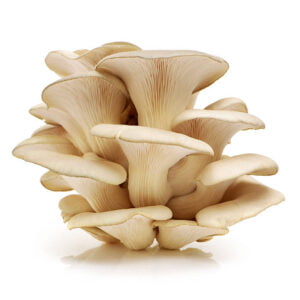
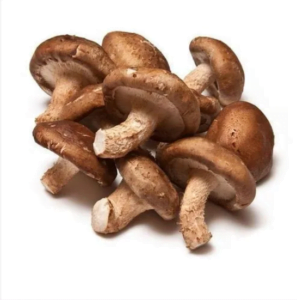
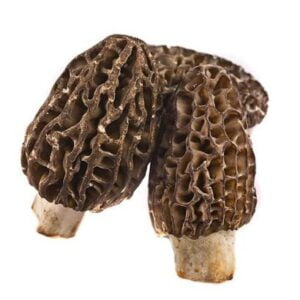
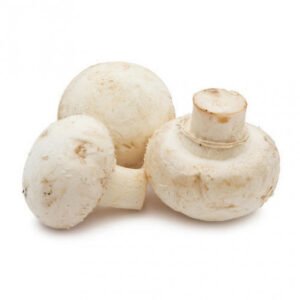
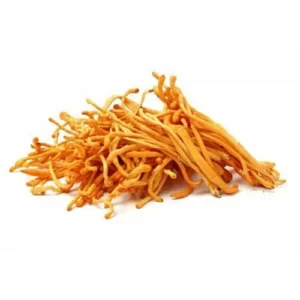
Health Benefits of Mushrooms
Boosting Immunity: Mushrooms contain beta-glucans, a type of complex carbohydrate that has been shown to stimulate the immune system. This can help the body fight off infections and diseases. Research has also shown that certain types of mushrooms, such as shiitake and maitake, can increase the production of white blood cells, which are important for fighting infections.
Lowering Cholesterol: Mushrooms are low in fat and contain compounds that can help lower cholesterol levels. Specifically, they contain beta-glucans and eritadenine, which have been shown to lower LDL (bad) cholesterol levels.
Controlling Blood Sugar Levels: Mushrooms are a good source of fiber, which can help regulate blood sugar levels. They also contain compounds that can improve insulin sensitivity, which is important for people with diabetes.
Preventing Cancer: Mushrooms contain compounds that have been shown to have anti-cancer properties. For example, the polysaccharides found in shiitake mushrooms have been shown to inhibit the growth of cancer cells. Other compounds found in mushrooms, such as ergothioneine and selenium, have also been shown to have anti-cancer properties.
Improving Brain Function: Mushrooms contain compounds that can improve brain function. For example, ergothioneine has been shown to have antioxidant properties that can protect the brain from oxidative stress. Other compounds found in mushrooms, such as choline and B vitamins, are important for maintaining healthy brain function.
Weight Loss: Mushrooms are low in calories and fat, making them a great food choice for people looking to lose weight. They are also high in fiber, which can help keep you feeling full and satisfied for longer periods of time. Additionally, mushrooms can be used as a healthy substitute for higher calorie ingredients in many dishes, such as burgers or pasta dishes, making them a great addition to any weight loss plan.
Promoting Healthy Skin: Mushrooms are a good source of vitamin D, which is important for maintaining healthy skin. They also contain compounds that can protect the skin from damage caused by UV radiation.
Supporting Bone Health: Mushrooms are a good source of vitamin D and copper, which are important for maintaining healthy bones. Vitamin D helps the body absorb calcium, which is important for bone health, while copper is important for producing collagen, a protein that is important for bone strength.
Aiding Digestion: Mushrooms are a good source of fiber, which is important for maintaining healthy digestion. They also contain compounds that can improve gut health, such as beta-glucans and polysaccharides.
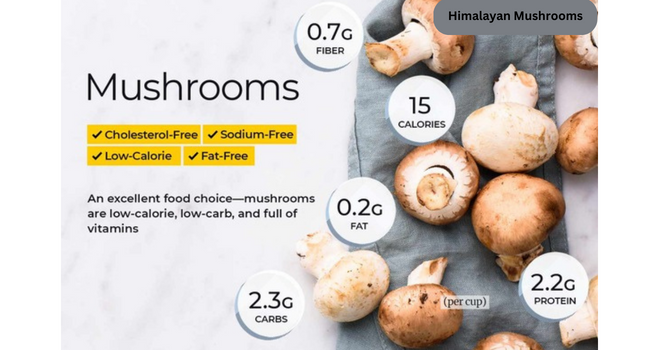
Mushroom Benefits: A Comprehensive Guide
Mushrooms are a versatile and delicious food that have been enjoyed for centuries. They come in many shapes, sizes, and colors, and can be eaten raw or cooked in a variety of dishes. But did you know that mushrooms also have a number of health benefits? In this article, we’ll explore the many benefits of mushrooms, from boosting immunity to preventing cancer.
Mushrooms are a type of fungus that grow in the wild or can be cultivated for food. They are low in calories, fat-free, and full of nutrients. In addition to their culinary uses, mushrooms have been used for medicinal purposes for thousands of years in many cultures. Recent research has confirmed many of the health benefits of mushrooms, making them a popular choice for those looking to improve their health.
"Unlocking the Magic of Mushrooms: The Secret to Optimal Wellness"
Step into the magical world of mushrooms and unlock their incredible health benefits! For centuries, these amazing fungi have been used to promote longevity and wellbeing, with countless studies supporting their powerful properties. Boost your immunity, relieve stress, and enhance cognitive function with our premium quality mushrooms. At our platform, we offer a wide range of fresh & dry organic mushrooms, mushroom powders, mushroom supplements and mixes that make it easy for you to incorporate mushrooms into your daily routine. Join the mushroom movement today and experience the wonders of nature like never before!
Nutritional Value of Mushrooms:
Mushrooms are a nutrient-dense food, meaning they are low in calories but high in nutrients. They are a good source of fiber, vitamins, and minerals. Here are some of the key nutrients found in mushrooms:
- Vitamin D: Mushrooms are one of the few natural food sources of vitamin D.
- B vitamins: Mushrooms are a good source of B vitamins, including riboflavin, niacin, and pantothenic acid, which are important for energy production and maintaining healthy skin and hair.
- Copper: Mushrooms are a good source of copper, which is important for producing red blood cells and maintaining healthy bones, nerves, and immune function.
- Potassium: Mushrooms are a good source of potassium, which is important for maintaining healthy blood pressure and heart function. Read more
Types of Edible Mushrooms and their Benefits:
There are many different types of edible mushrooms, each with its own unique flavor and nutritional profile. Here are some of the most popular types of mushrooms:
- Shiitake
- Reishi
- Maitake
- Portobello
- Button
- Oyster
- Enoki
- Chanterelle
How to Incorporate Mushrooms into Your Diet:
There are many ways to incorporate mushrooms into your diet. Here are some ideas:
- Saute mushrooms and serve them as a side dish.
- Add sliced mushrooms to omelets or frittatas.
- Top pizzas with sliced mushrooms.
- Use portobello mushrooms as a meat substitute in burgers or sandwiches.
- Add mushrooms to stir-fries or pasta dishes.
Conclusion:
Mushrooms are a delicious and nutritious addition to any diet. They are low in calories and fat, and are a good source of vitamins, minerals, and fiber. Mushrooms have been shown to have many health benefits, including boosting immunity, lowering cholesterol, controlling blood sugar levels, preventing cancer, and improving brain function. There are many different types of edible mushrooms, each with its own unique flavor and nutritional profile. Incorporating mushrooms into your diet is easy and delicious, and can help improve your overall health.
What are mushrooms?
Mushrooms are the fleshy, spore-bearing fruiting bodies of fungi. They come in various shapes, sizes, and colors and are known for their unique flavors and nutritional value.
How do mushrooms grow?
Mushrooms grow from spores, which are similar to seeds. Under suitable conditions of moisture, temperature, and substrate (organic matter), the spores germinate and develop mycelium—a network of thread-like structures. The mycelium eventually forms the fruiting body, which we recognize as a mushroom.
Can mushrooms be cultivated at home?
Yes, mushrooms can be cultivated at home. Certain mushroom species, such as oyster mushrooms, shiitake mushrooms, and white button mushrooms, are popular choices for home cultivation. Special kits or substrates are available that provide the necessary conditions for successful mushroom growth.
Are mushrooms a good vegetarian substitute for meat?
Yes, mushrooms are often used as a vegetarian substitute for meat due to their unique texture and umami flavor. Varieties such as portobello, shiitake, and oyster mushrooms are commonly used in vegetarian and vegan dishes to provide a meaty alternative.
Are all mushrooms safe to eat?
No, not all mushrooms are safe to eat. While many species are edible and nutritious, there are also poisonous varieties that can cause severe illness or even be fatal. It is essential to have proper knowledge or consult an expert before consuming wild mushrooms.
What are the health benefits of mushrooms?
Mushrooms are a good source of nutrients, including vitamins (such as B vitamins), minerals (like selenium and potassium), fiber, and antioxidants. They may contribute to a healthy immune system, improve digestion, and offer potential anti-inflammatory and anticancer properties.
How long do mushrooms last?
The shelf life of mushrooms varies depending on the type and freshness. Typically, fresh mushrooms can be stored in the refrigerator for about one week. It is best to store them in a paper bag or a breathable container to prevent moisture buildup, which can lead to spoilage.
Can mushrooms be used for medicinal purposes?
Yes, certain mushroom species have been used for centuries in traditional medicine. For example, reishi mushrooms are believed to boost the immune system, lion’s mane mushrooms may support brain health, and cordyceps are thought to enhance athletic performance. However, it’s important to consult with a healthcare professional before using mushrooms for medicinal purposes.

